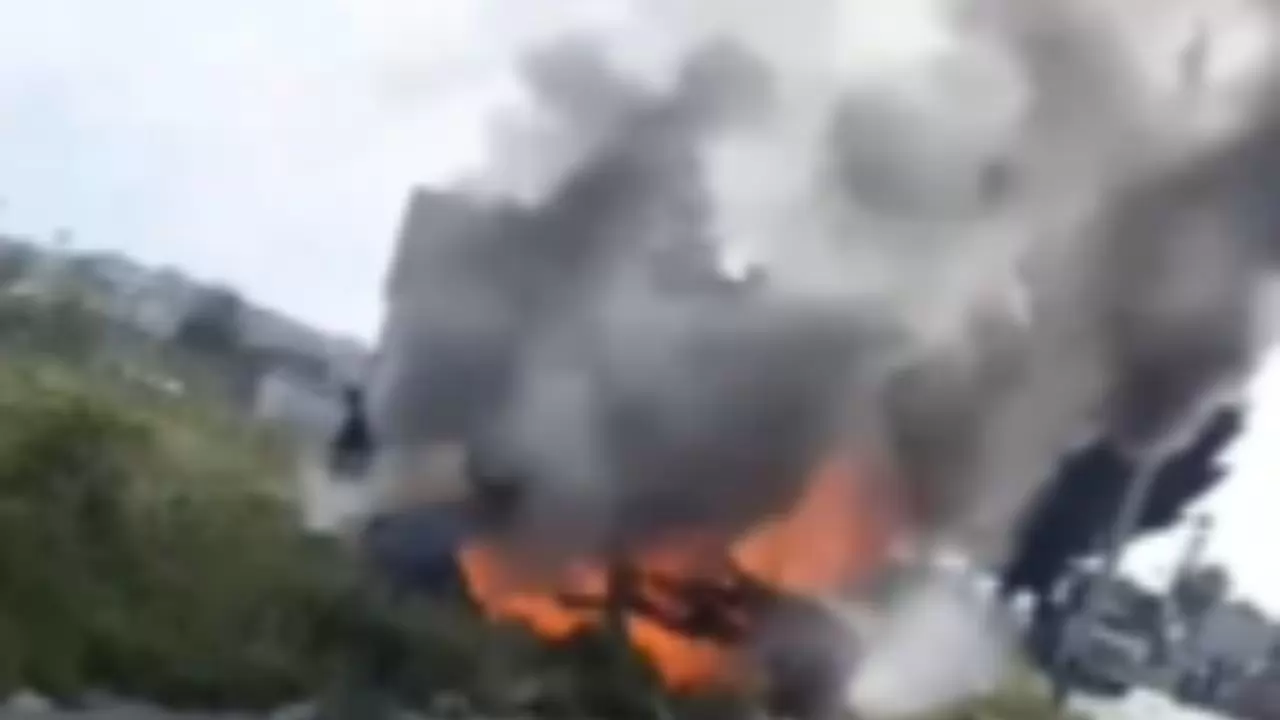
X
The Israeli military has reported a targeted strike in Lebanon that resulted in the death of a prominent figure within Hezbollah's rocket unit. The commander, whose identity has not been officially disclosed, was a key leader within the militant group responsible for orchestrating rocket attacks against Israel.
IDF: The IDF eliminated the Deputy Commander of the Rocket and Missiles Unit in the Hezbollah terrorist organization
Earlier today (Friday), an IAF aircraft struck and eliminated Ali Abed Akhsan Naim, the Deputy Commander of Hezbollah’s Rocket and Missile Unit, in the area of… pic.twitter.com/JkIm9X5ETk— Gator Nana (@GatorNanaJag) March 29, 2024
According to Israeli military sources, the strike was a precision operation aimed at neutralizing specific threats posed by Hezbollah's rocket unit. The operation took place in a strategic location in Lebanon, signaling Israel's commitment to preemptively addressing security challenges along its northern border.
Hezbollah, a Lebanon-based Shiite militant organization, has condemned the Israeli strike as an act of aggression and vowed retaliation. The group has long been a formidable adversary for Israel, with past conflicts leading to significant casualties and regional tensions.
The incident comes amidst heightened tensions in the region, with ongoing clashes and proxy confrontations between various actors. Lebanon, already grappling with political and economic challenges, faces added pressure as the specter of conflict looms large.
The elimination of the Hezbollah rocket unit commander represents a significant blow to the group's operational capabilities. Israeli officials have reiterated their commitment to preventing Hezbollah from obtaining advanced weaponry and maintaining a deterrent posture against threats emanating from Lebanon.
The strike has garnered attention internationally, with reactions ranging from concern over escalating hostilities to calls for restraint and diplomatic engagement. The United Nations and other global stakeholders have urged all parties to exercise caution and refrain from actions that could further destabilize the region.
As tensions remain high, both Israel and Hezbollah are expected to maintain heightened vigilance along the border. The potential for further escalations and retaliatory measures underscores the volatile nature of the security landscape in the Middle East.
The targeted strike in Lebanon, resulting in the death of Hezbollah's rocket unit commander, reflects the ongoing dynamics of conflict and rivalry in the region. The incident underscores the complex challenges faced by regional actors and the delicate balance of power that shapes their interactions. Efforts towards de-escalation and dialogue remain crucial in preventing further escalation and fostering stability in the region.





Copyright © 2026 Top Indian News
